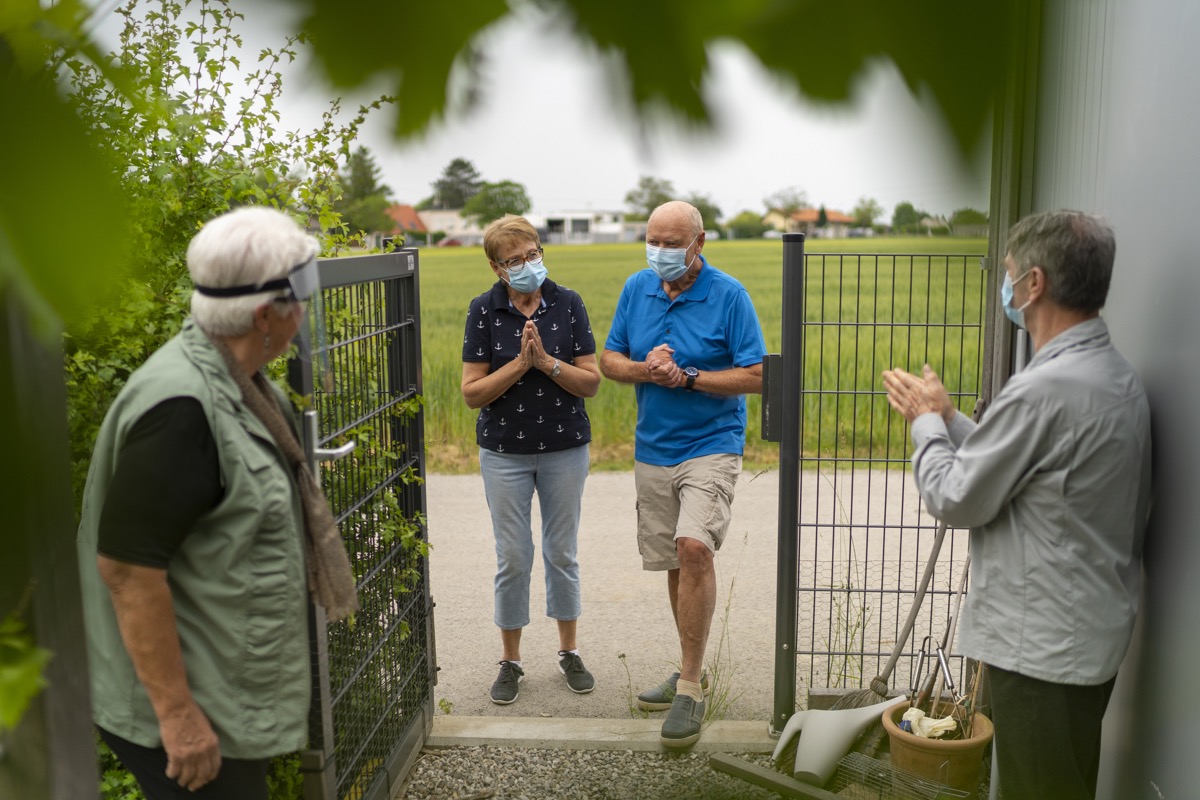If you’re having people over for the Fourth of July or Father’s Day, for example, make sure you follow proper precautions to ensure the safety of yourself and your guests. “Remind invited guests to stay home if they have been exposed to COVID-19 in the last 14 days or are showing COVID-19 symptoms,” the CDC says. “Invited guests who live with those at higher risk should also consider the potential risk to their loved ones.” RELATED: For more up-to-date information, sign up for our daily newsletter. The CDC also recommends that whenever possible, parties and other gatherings should be held outdoors, as that allows for more natural airflow to help prevent coronavirus spread. However, if you can’t hold your gathering outside, open a window to make sure the space is well-ventilated. As far as greetings, it’s best to skip the formalities. The CDC says to avoid any kind of handshaking, elbow bumping, or hugging—instead, welcome guests with a verbal greeting and friendly wave. In the event close contact does occur, be prepared to provide guests with face coverings or ask them to bring their own to wear any time they are indoors or less than six feet apart from others. You should also “arrange tables and chairs to allow for social distancing,” grouping families together, the CDC says. If you’re serving food, extra precautions need to be taken. Guests should thoroughly wash their hands or use a 60 percent-alcohol based hand sanitizer when entering and exiting the gathering, as well as before eating. They should also be encouraged to bring their own food and drinks. However, if you are serving a shared meal, the CDC recommends choosing one person to serve all the food so multiple people are not handling the serving utensils. Any reusable items that are shared, from seating covers to table cloths and linen napkins, should be washed, cleaned, and sanitized immediately following the event.ae0fcc31ae342fd3a1346ebb1f342fcb If the recommendations sound extensive, that’s because having people over is still a big risk. “Any time people interact, there’s a transmission risk for the virus,” Amesh Adalja, MD, a senior scholar at the Johns Hopkins University Center for Health Security, told SELF. “If you’re somebody who’s pretty risk-tolerant and doesn’t have risk factors for severe disease, you can go to the barbecue, but know that there’s going to be a risk. Nothing you do in the era of the pandemic is going to be zero-risk.” Finally, in order to help monitor the coronavirus spread, the CDC recommends “keeping a list of guests who attended for potential future contract tracing needs.” And for more ways to stay safe, check out the 10 Mistakes You Shouldn’t Make This Summer, Warns the CDC.
